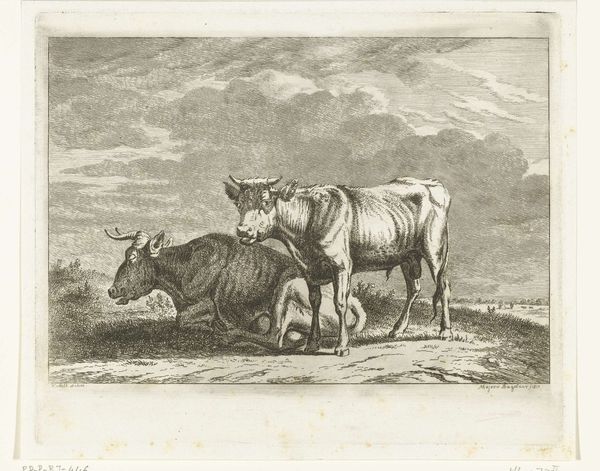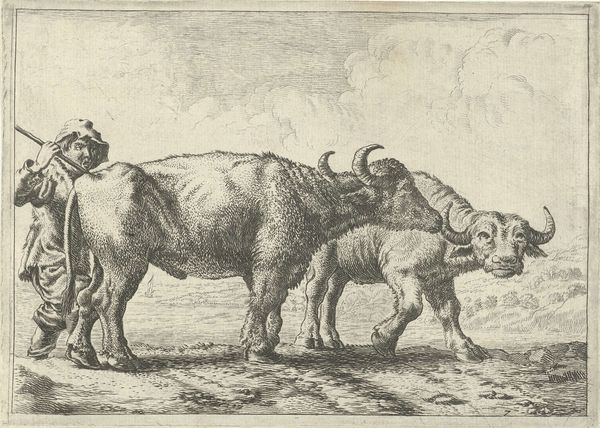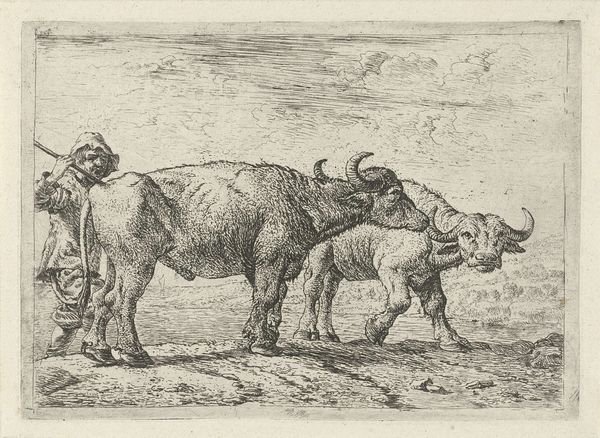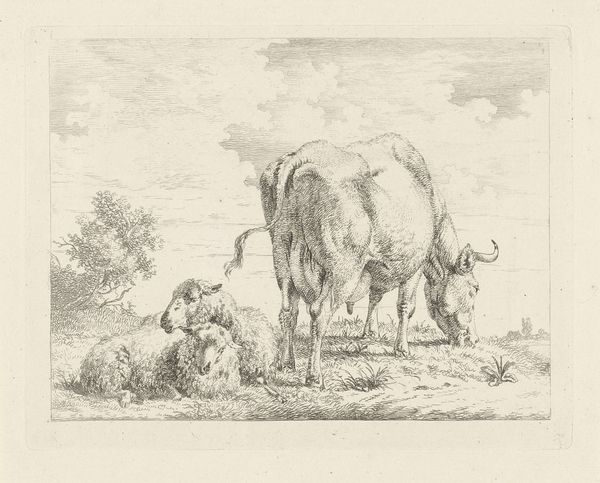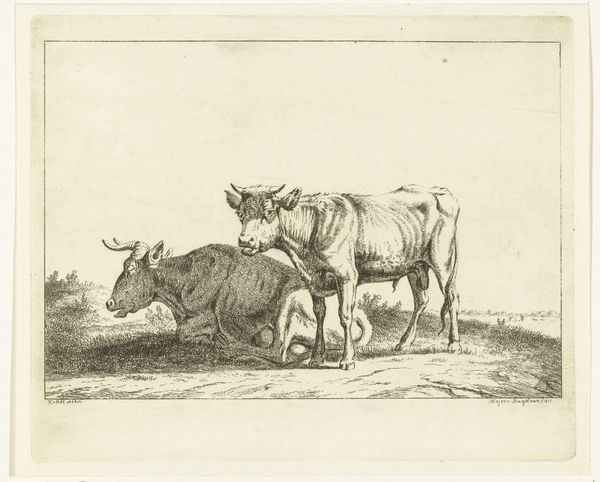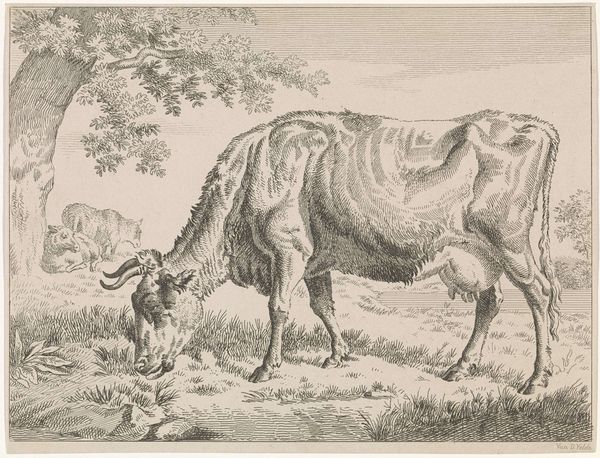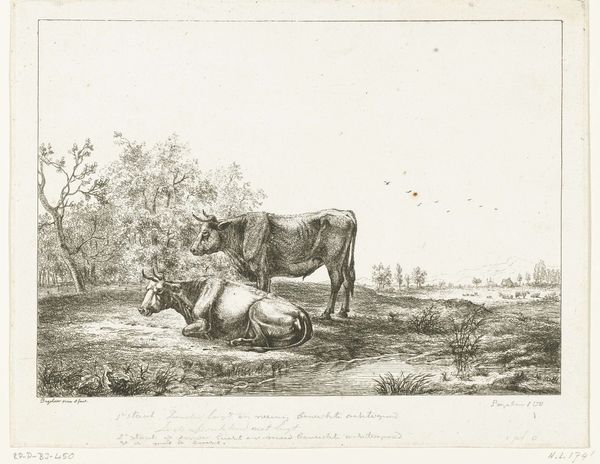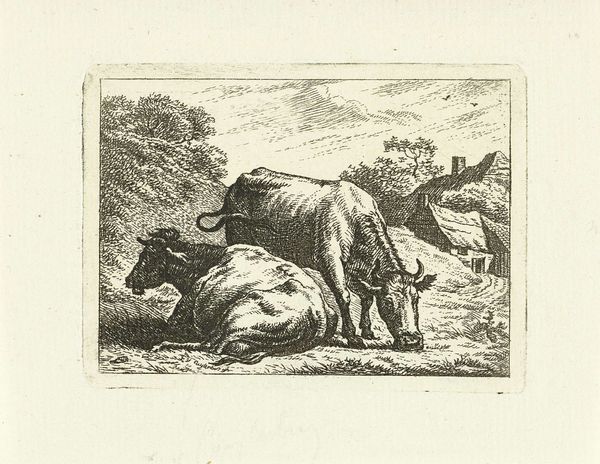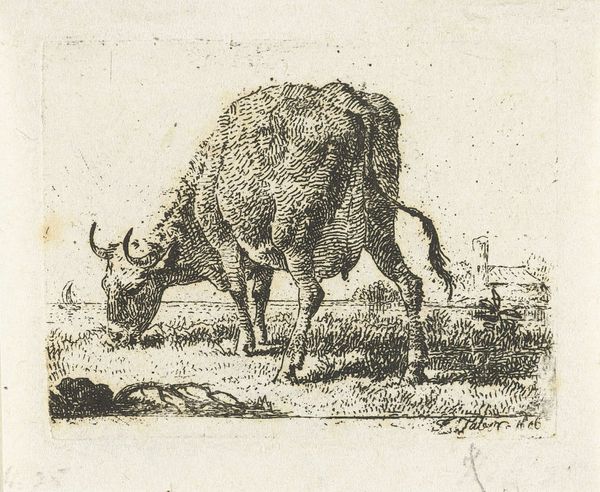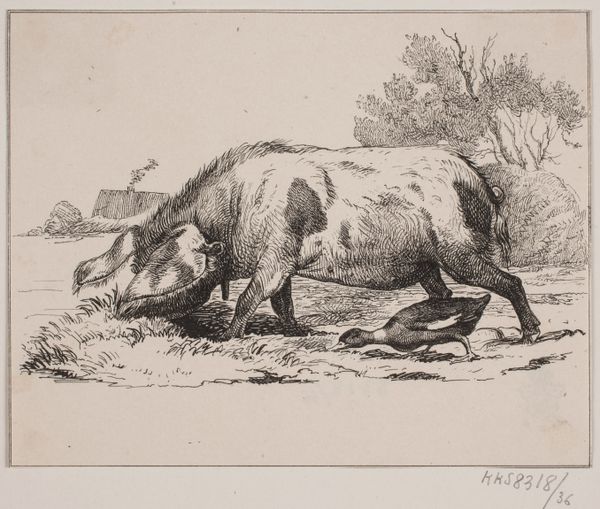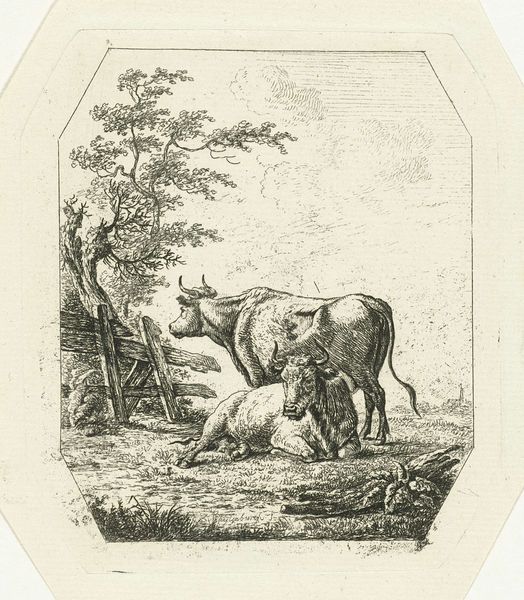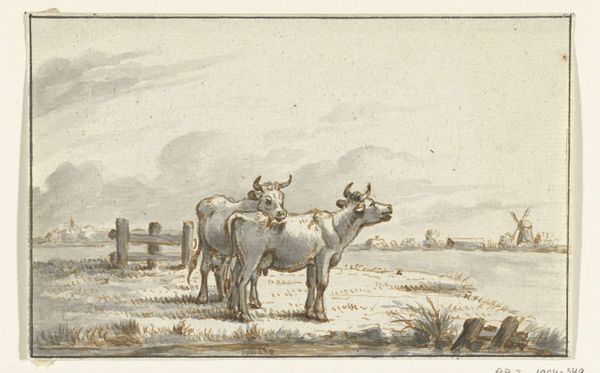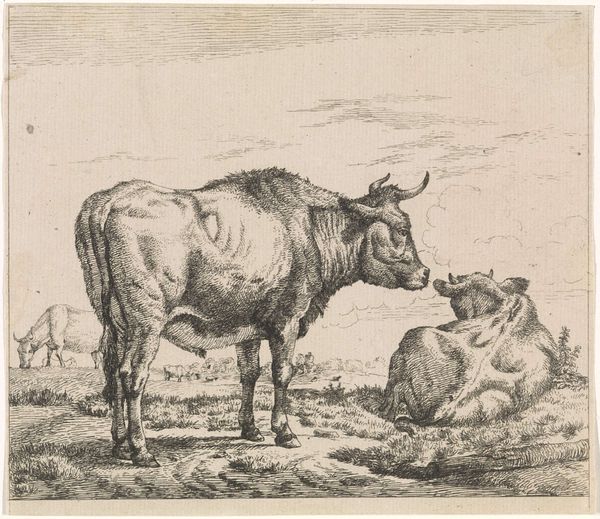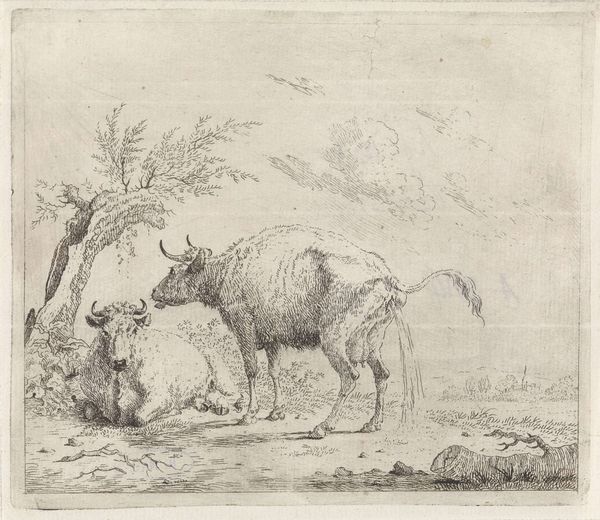
etching
#
etching
#
old engraving style
#
landscape
#
realism
Dimensions: height 114 mm, width 142 mm
Copyright: Rijks Museum: Open Domain
This small etching presents us with two cows in a pasture with a ditch and ducks, made by Ernst Willem Jan Bagelaar. In the Dutch landscape tradition, the cow is a symbol of prosperity, of the fertile earth providing for its people. The image of animals drinking can be traced back to ancient Egyptian art, often symbolizing life and abundance, as seen in tomb paintings where cattle drink from the Nile. This motif reappears in Roman mosaics, where animals at the watering hole represent the good life provided by the empire. Consider how these pastoral scenes trigger deep-seated memories of an idyllic past, a subconscious longing for a simpler existence rooted in the soil. The cow, in this context, is not merely an animal, but a vessel of collective memory. This scene pulls us into a world of shared experience, a powerful force engaging viewers on a deep, subconscious level. Note how, in this iteration, the cow is no longer a sacred animal but a symbol of economic well-being and national identity.
Comments
No comments
Be the first to comment and join the conversation on the ultimate creative platform.
